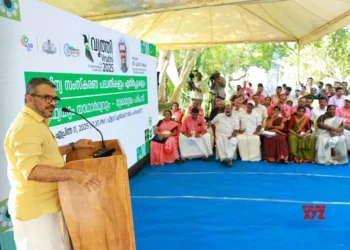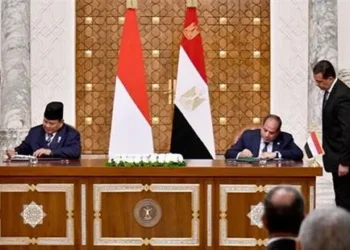Putin’s attack is not primarily about NATO or security. It’s all about his xenophobic, imperial and misguided notion that Ukraine was inherently an appendage of Russia, its independence a historical fluke and its rulers usurpers
Explosions were reported in cities across Ukraine early Thursday morning after President Vladimir Putin of Russia vowed in a speech to “demilitarise” the neighbouring nation, and any hope for a peaceful resolution to the crisis appeared all but snuffed out. On Wednesday, Ukraine declared a 30-day state of emergency, called up military reserves and warned its citizens to leave Russia. The European Union announced it was preparing to handle a large influx of refugees uprooted by war. Financial markets are bracing for the turmoil that a land war and sanctions could unleash across the global economy.
As the cause of all of this, Vladimir Putin is giving a master class in dangerous and destructive leadership and making it all the more important that President Biden and other nations stand resolutely together in the face of threats, feints and misinformation and remain disciplined and energised in confronting Putin. He is clearly playing a long game, and the West should continue to prepare for that and make clear, as Biden has done, that the Russian president is acting unacceptably and will pay consequences for his actions.
The scope of Putin’s professed ambition is alarming and bewildering for much of the world. As Biden asked, “Who in the Lord’s name does Putin think gives him the right to declare new so-called countries on territory that belonged to his neighbours?”
All this makes clear that Putin’s attack is not primarily about NATO or security. It’s all about his xenophobic, imperial and misguided notion that Ukraine was inherently an appendage of Russia, its independence a historical fluke and its rulers usurpers. His recognition of separatist states in Ukraine extended not only to enclaves controlled by pro-Russian forces but also to entire provinces, amounting to a major chunk of Ukrainian territory that includes the important port of Mariupol.
The magnitude of the Russian gambit is staggering. Whatever Putin’s ideas on how Ukraine should relate to Russia, whatever his grievances over Western encroachment on what he perceives as Russia’s sphere of influence, whatever his views on Russia’s place in Europe and the world, an unprovoked invasion of a sovereign European state is an unprovoked declaration of war on a scale, on a continent and in a century when it was thought to be no longer possible.
If nothing else, Putin should consider what this means for his people, to whom he has lied, day after day, about purported threats and slights from Ukraine and the West. There will be body bags coming home to Russia and economic dislocation and global ostracism for a nation that has suffered terribly over the past century from war and totalitarian rule.
Biden, for his part, has managed this crisis with toughness, patience, resolve and dignity, revealing regularly what American intelligence knew about Putin’s schemes. It was a novel approach to crisis management in the age of social media and probably helped harden European resolve during the ambiguous months-long build-up of Russian forces. Putin should see that this is the resolute face of the world’s premier democracy and most powerful nation.
Secretary of State Antony Blinken canceled a meeting scheduled for this week with the Russian foreign minister, Sergey Lavrov. In a letter to Lavrov, Blinken said that diplomatic off-ramps exist “if Russia is prepared to take demonstrable steps to provide the international community with any degree of confidence it’s serious about de-escalating and finding a diplomatic solution.”
Biden and America’s NATO allies have properly declared going to war with Russia over Ukraine unthinkable. Ukraine, far weaker militarily than Russia, will have to bear the brunt of the attack alone, though, as Biden warned, the sanctions against Russia will have far-reaching economic costs for Europe and the United States, starting with an inevitable increase in the cost of energy.
Biden was right not to unleash the full arsenal of sanctions yet.
As long as there is the slightest chance of deterring a full-scale invasion, he and his allies and partners must retain sticks and carrots, however few remain. That could include declaring Putin and his lieutenants war criminals, subject to arrest anywhere outside Russia. Many more banks can be added to the few that have been barred from the global financial system; trade in a broad array of technologies needed by Russian industry can be banned.
These sanctions will also hurt the West, especially Germany, and Russia may well retaliate through cyberattacks or other means that could shake global energy markets. Any such costs should be weighed against the gravity of what Russia has done.
Analysts and historians will long debate whether Putin’s grievances had bases in fact, whether the United States and its allies were too cavalier in expanding NATO, whether Russia was justified in believing that its security was compromised. There will also be heated questioning over whether Biden and other Western leaders could have done more to assuage Putin.
But no, there is absolutely no justification for a brazen invasion of a weaker neighbour. To answer Biden’s anguished question, nobody and nothing have given Putin the right to seize territory or decide the fate of neighbouring nations. The consequences of his aggression will be terrible for Ukraine and painful for the West and will exact a huge cost on Russia in lives and stunted development. For all this, Putin carries the full responsibility.























